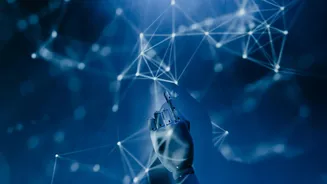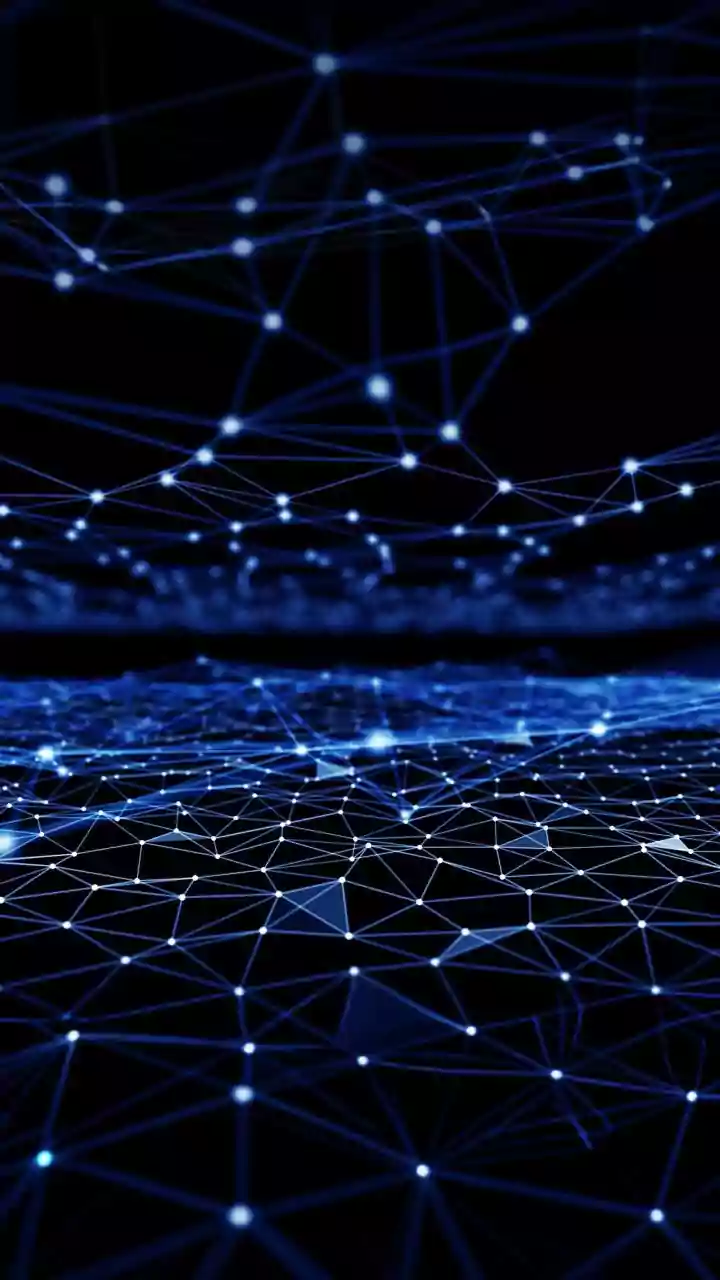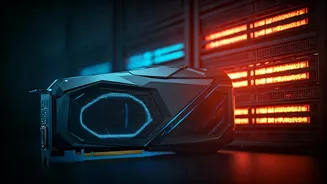What is the story about?
At CNBC-TV18’s Global Leadership Summit 2025 in Mumbai on November 7, some of the world’s leading voices in technology, consulting, and business converged to discuss the future of artificial intelligence — and India’s growing influence at its core.
Jeff Walters, Managing Director and Partner at Boston Consulting Group (BCG), called AI’s rise "unlike any other technological shift seen in recent times," adding that "with what’s happening with AI today, India is a leader on many metrics." He said the country is poised to drive innovation "at the model layer" as developments diversify beyond China.
"AI is still in its early stages — Chapter 1 — of transforming knowledge work," Walters noted. "Over time, human ingenuity will redefine how economic productivity is measured."
Author Michael Bhaskar described intelligence as "the architect of the world," arguing that India’s vast data reserves make it "incredibly well positioned" to leverage AI at scale. "We’re seeing a deeper AI revolution where people are becoming increasingly comfortable with agentic AI," he said.
Preeti Lobana, Vice President and Country Manager at Google India, said India's AI journey must be guided by inclusivity, local innovation, and empowerment, not imitation.
"The real opportunity for India and the Global South is not just to catch up but to leapfrog ahead," she said. "AI for India needs to be inclusive rather than exclusive. We need to make sure that AI that is deployed understands the key languages in India… and for that, training AI through local datasets is absolutely key."
Lobana cited Google’s open-source efforts such as Project Vaani and GEA, which aim to create large-scale datasets of Indian dialects. "We are building compute and infrastructure locally," she said. "We mustn’t be just implementing what’s built elsewhere; we are innovating here."
On AI safety, Lobana was categorical: "Safety is infrastructure. It is foundational. It's horizontal. Before we think of anything else, we’ve got to build it in."
Her advice for startups? "Values over vibes. Make sure you're developing something measurable — whether it's revenue, cost savings, or better returns."
Christophe De Vusser, CEO and Worldwide Managing Partner at Bain & Company, said today’s CEOs are "orchestrators of transition," balancing ambition with human trust.
"A CEO today is not just managing operations, they are orchestrating a business transition enabled by AI," he said. "Trust in the world of AI is critical. Humans will continue to play a core role in balancing trust and taking advantage of technology."
De Vusser reaffirmed Bain’s bullish outlook on India, calling it "the only country in the world with a dual engine of growth — population and globalisation." "India’s population isn’t a challenge, it’s an economic engine the world envies," he said.
OpenAI’s Oliver J, Managing Director of International Strategy, said India is a priority market that continues to shape how the company innovates.
"Students in India aren’t necessarily looking for answers — they want to understand how to reach those answers," he said. "That insight shaped our new Study Mode."
He added, "2025 is the year AI goes from the chatbot era into the intelligence era," with India’s young, curious user base inspiring much of that shift. "India is inspiring OpenAI to do great work. If you build for India, you can build for the world."
Cybersecurity was another major theme at GLS 2025. Google’s Sachin Kakkar warned that the cost of cybercrime could soar to $14 trillion within three years.
"The cost of cybercrime in 2025 is around $10 trillion, and it's going to become $14 trillion in three years," he said, noting that "today’s attackers are highly sophisticated professionals, sometimes nation-state actors."
IBM’s Sandip Patel highlighted the looming quantum computing threat: "You talk to a pessimist, they’ll say it’s four years out. You talk to an optimist, they’ll say two years out. So quantum is here."
Kotak811's Jay Kotak cautioned that AI deepfakes could "substantially undermine" trust in financial systems. "Trust is not to be taken for granted," he said.
Also Read: GLS 2025 | Shaktikanta Das: ‘Every challenge an opportunity’; backs reforms, tech and tier-2 growth
Jeff Walters, Managing Director and Partner at Boston Consulting Group (BCG), called AI’s rise "unlike any other technological shift seen in recent times," adding that "with what’s happening with AI today, India is a leader on many metrics." He said the country is poised to drive innovation "at the model layer" as developments diversify beyond China.
"AI is still in its early stages — Chapter 1 — of transforming knowledge work," Walters noted. "Over time, human ingenuity will redefine how economic productivity is measured."
Author Michael Bhaskar described intelligence as "the architect of the world," arguing that India’s vast data reserves make it "incredibly well positioned" to leverage AI at scale. "We’re seeing a deeper AI revolution where people are becoming increasingly comfortable with agentic AI," he said.
Preeti Lobana, Vice President and Country Manager at Google India, said India's AI journey must be guided by inclusivity, local innovation, and empowerment, not imitation.
"The real opportunity for India and the Global South is not just to catch up but to leapfrog ahead," she said. "AI for India needs to be inclusive rather than exclusive. We need to make sure that AI that is deployed understands the key languages in India… and for that, training AI through local datasets is absolutely key."
Lobana cited Google’s open-source efforts such as Project Vaani and GEA, which aim to create large-scale datasets of Indian dialects. "We are building compute and infrastructure locally," she said. "We mustn’t be just implementing what’s built elsewhere; we are innovating here."
On AI safety, Lobana was categorical: "Safety is infrastructure. It is foundational. It's horizontal. Before we think of anything else, we’ve got to build it in."
Her advice for startups? "Values over vibes. Make sure you're developing something measurable — whether it's revenue, cost savings, or better returns."
Christophe De Vusser, CEO and Worldwide Managing Partner at Bain & Company, said today’s CEOs are "orchestrators of transition," balancing ambition with human trust.
"A CEO today is not just managing operations, they are orchestrating a business transition enabled by AI," he said. "Trust in the world of AI is critical. Humans will continue to play a core role in balancing trust and taking advantage of technology."
De Vusser reaffirmed Bain’s bullish outlook on India, calling it "the only country in the world with a dual engine of growth — population and globalisation." "India’s population isn’t a challenge, it’s an economic engine the world envies," he said.
OpenAI’s Oliver J, Managing Director of International Strategy, said India is a priority market that continues to shape how the company innovates.
"Students in India aren’t necessarily looking for answers — they want to understand how to reach those answers," he said. "That insight shaped our new Study Mode."
He added, "2025 is the year AI goes from the chatbot era into the intelligence era," with India’s young, curious user base inspiring much of that shift. "India is inspiring OpenAI to do great work. If you build for India, you can build for the world."
Cybersecurity was another major theme at GLS 2025. Google’s Sachin Kakkar warned that the cost of cybercrime could soar to $14 trillion within three years.
"The cost of cybercrime in 2025 is around $10 trillion, and it's going to become $14 trillion in three years," he said, noting that "today’s attackers are highly sophisticated professionals, sometimes nation-state actors."
IBM’s Sandip Patel highlighted the looming quantum computing threat: "You talk to a pessimist, they’ll say it’s four years out. You talk to an optimist, they’ll say two years out. So quantum is here."
Kotak811's Jay Kotak cautioned that AI deepfakes could "substantially undermine" trust in financial systems. "Trust is not to be taken for granted," he said.
Also Read: GLS 2025 | Shaktikanta Das: ‘Every challenge an opportunity’; backs reforms, tech and tier-2 growth



















